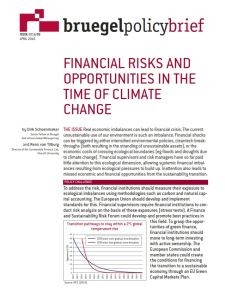Join getAbstract to access the summary!

Join getAbstract to access the summary!
Dirk Schoenmaker and Rens van Tilburg
Financial Risks and Opportunities in the Time of Climate Change
Bruegel, 2016
What's inside?
Energy imbalances are driving both environmental devastation and risks of financial crises.
Recommendation
Climate change, along with the overuse of natural resources, poses not just a global environmental risk but also raises the potential of serious financial shocks to the economy. While some of the dangers based on the current trajectory of environmental degradation are knowable, others present asymmetric perils to the financial ecosystem, argue authors Dirk Schoenmaker and Rens van Tilburg. getAbstract recommends their cogent report to policy makers, financial executives and others interested in the nexus of finance and energy.
Summary
About the Authors
Dirk Schoenmaker is a senior fellow at Bruegel. Rens van Tilburg is the director of the Sustainable Finance Lab at Utrecht University.






















Comment on this summary